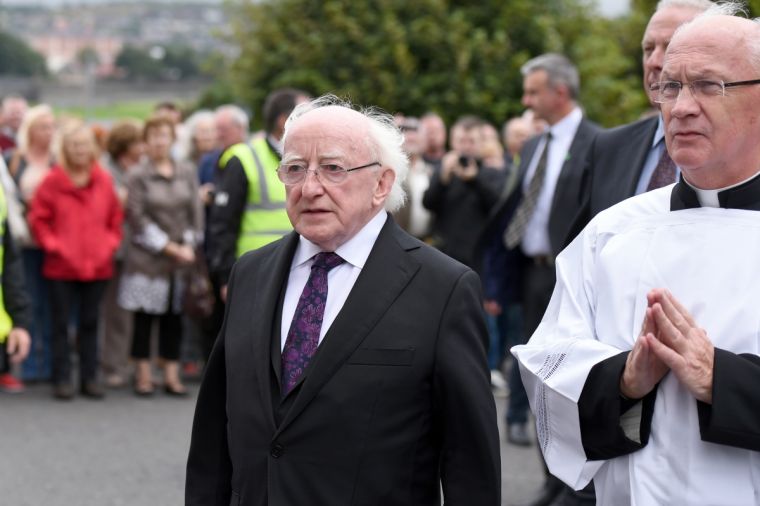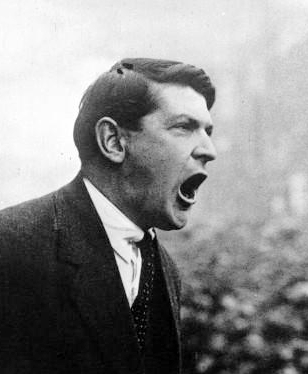President of Ireland calls for 'outrages' against Protestants to be remembered

The President of Ireland has called on the population to remember the "outrages" perpetrated on Protestants during the long fight for independence, and the "ruthlessness" of many executions performed by the IRA.
In a speech yesterday Michael Higgins recalled the "embittered sectarian violence" and how some Protestants were attacked regardless of their actual attitude towards the struggles underway.
"It is also important to recognise that the cover of the civil war was used by some for the settling of vendettas, some local, some ancient, some based on land hunger and greed," he said.
Higgins was delivering the annual Béal na mBláth tribute to the Irish republican leader Michael Collins in an oration published in full on his website.
He was speaking at the invitation of the Collins family and the commemoration committee.

This year's event was particularly significant because this year is the centenary of the Easter Rising, the pivotal six-day armed rebellion against British rule in 1916. Higgins described the rising as the "foundational event" in Ireland's struggle for independence.
Higgins said: "In this year of 2016 it is important to recognise that while a great deal had been achieved in Ireland before 1916, particularly in relation to land tenure, through the parliamentary process driven by the Irish Parliamentary Party, the independence we have today was achieved through a War of Independence that was conducted across Ireland".
Describing Collins' early adulthood when he left his home in Ireland to work as a junior civil servant in London, Higgins said this was "a London that regarded his people as inferior, his Irish culture as worthless, and his language as an object for replacement by erosion or coercion. It was not as an equal citizen he stood in London."
It was in England that Collins became a member of the Irish Republican Brotherhood and became convinced of the need to capitalise on the weakness of the British Empire and make a strike for freedom as British soldiers were engaged in fighting World War One.
After the Easter Rising, Collins and 1,800 other Irish men were interned in North Wales where he formed his concept of a guerrilla campaign against British rule.
Higgins said: "The memory of Michael Collins will forever be enmeshed with that of the tragic and bloody Civil War which raged on this island throughout the years 1922-1923.
"This was a dreadful human tragedy for so many Irish families. And while we should never underestimate the challenge that it was to build the foundations of a stable democratic state in the midst of turmoil and in the shadow of a great power, we must never forget what a terrible price was paid in divided families and divided communities, leaving a legacy that was felt for generations.
"When the time comes, very soon, to commemorate those events of the early 1920s, we will need to display courage and honesty as we seek to speak the truth of the period, and in recognising that, during the War of Independence, and particularly during the Civil War, no single side had the monopoly of either atrocity or virtue.
"We will remember from the earlier War of Independence and the response to it, the devastation spread throughout the land by the Auxiliaries and the Black and Tans. The arbitrary killings, the ruthless raids on civilians' homes, the torturing of prisoners, the looting of shops, the burning down of creameries and farmhouses."











